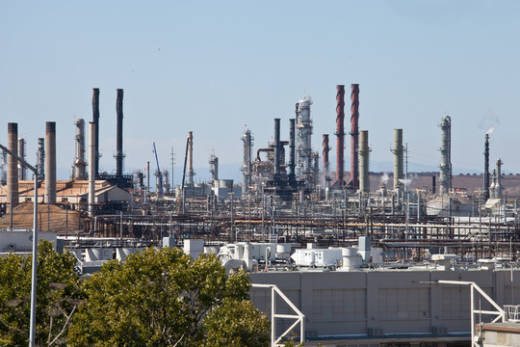California lawmakers have reached a deal that would extend the state’s landmark cap-and-trade program until the end of 2030, with measures to address concerns of both California businesses and environmentalists.
Negotiations produced a deal that includes provisions aimed at helping California businesses, as well as improving local air quality. The latter is addressed in an accompanying piece of legislation. Gov. Jerry Brown and legislative leaders are hoping the cap-and-trade extension will receive a two-thirds vote to protect the program from legal challenges.
The language of the extension agreement, contained in AB 398 from Assemblyman Eduardo Garcia (D-Coachella), was put into print on Monday evening. Under the state's 72-hour rule, a final vote can now be taken on the measures on Thursday.
Here are a few highlights from the deal:
- The California Air Resources Board will set a ceiling on the price of allowances: Republicans have expressed wariness about giving the board the power to set the cost ceiling for pollution credits after the legislation is passed. A hard ceiling will also give less certainty that the program helps meet the 2030 emissions goals. All sides agree, however, that a ceiling provides cost certainty for businesses, and helps avoid a disastrous price spike that could hurt consumers and threaten the entire program.
- Free allowances and offsets: Companies will continue to receive free emission allowances in the new program. An earlier cap-and-trade proposal sought to end the practice, but businesses contend that allowances are needed to compete with companies in other states, which aren't subject to the cap-and-trade program. Allowances will decline in the extension as the emissions cap shrinks, similar to the current design. Companies will also be allowed to offset their greenhouse gas emissions by paying for projects that benefit the environment. Allowable offsets will decrease in the extension, and projects will be geared toward helping disadvantaged communities, an effort spearheaded earlier this year by Assemblywoman Autumn Burke (D-Inglewood).
- Air quality concerns addressed in partner bill. The air quality bill, AB 617 from Assemblywoman Cristina Garcia (D-Bell Gardens), will empower local air districts to require both expanded monitoring of polluters and the retrofitting of industrial sources to cut down on the emission of air pollutants. Back in May, Garcia made a personal pitch to the governor to tackle local pollutants that disproportionately affect poor neighborhoods.
- Restrictions on regulations outside of cap and trade. The bill includes two provisions that would essentially block some additional regulations on companies outside the market-based system. One prohibits local air districts from also limiting carbon-dioxide emissions, which the Bay Area Air Quality Management District has considered. Businesses say that greenhouse gases are not a local pollutant, and thus should not be regulated on such a local level. A second item in the bill limits the regulation of greenhouses gases from oil companies to the cap-and-trade program. Both measure have drawn the ire of environmentalists.
With the departure of Assemblyman Jimmy Gomez to Congress, Democrats are left with the bare minimum number of seats to pass a supermajority bill on a party-line vote. A number of provisions in the bill are expected to appeal to Republicans, including the end of a fire prevention fee largely paid by residents living in rural Republican areas of the state.
